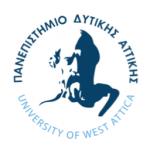2025 |
Drivas, Ioannis; Vraimaki, Eftichia Evaluating and Enhancing Museum Websites: Unlocking Insights for Accessibility, Usability, SEO, and Speed Journal Article In: Metrics, vol. 2, iss. 1, 2025. Abstract | Links | BibTeX | Tags: analytics, evaluation, performance, web analytics, website @article{nokey,The digital transformation of museums has elevated their websites from mere informational tools to dynamic platforms that foster cultural engagement, inclusivity, and preservation. This study evaluates the performance of 234 museum websites worldwide, focusing on critical dimensions such as accessibility, usability, SEO, and speed. By employing a comprehensive diagnostic framework of evaluation metrics, the research reveals disparities between mobile and desktop versions, highlights regional variations, and identifies key performance drivers. Generally, desktop sites outperform their mobile counterparts, underscoring the necessity for tailored optimization strategies that strike a balance between fast-loading, visually stable mobile pages and content-rich desktop experiences. A key contribution of this study is the development of an easy-to-adopt and inclusive evaluation framework that unites fragmented approaches, enabling museums of all sizes to enhance their digital presence. Furthermore, the research provides actionable insights for administrators, particularly those in resource-constrained institutions, through a cost-free, user-friendly toolkit that simplifies technical metrics and promotes internal staff capacity building in digital analytics. Ultimately, the findings help empower museums to bridge digital performance gaps while ensuring they continue to function as vibrant cultural hubs in a rapidly changing digital landscape. |
2019 |
Koulouris, Alexandros Evaluation of the Archival, Library and Information Studies Department eClass at University of West Attica Journal Article In: Journal of Integrated Information Management, vol. 4, no. 2, pp. 7-15, 2019. Abstract | Links | BibTeX | Tags: e-class, e-learning, evaluation, information policy, moodle, students, surveys @article{Alexandros2019,Purpose - This paper presents and discusses the main results of a survey concerning students and faculty (academic staff) evaluation of the eClass of the Department of Archival, Library & Information Studies, University of West Attica, with the use of online questionnaire. The survey was conducted in October 2019 and it is a comparative study of a previous research-survey (about the eClass) of 2012. Design/methodology/approach - The questionnaire, consisted of open and closed-ended questions, and were sent respectively to the undergraduate and postgraduate students and the faculty’s staff (or professors) of the Department. As a result, 275 valid answers (233 undergraduates and 42 postgraduates’ valid responses) translated to a net response rate of 39%, while the faculty survey returned 29 valid answers with a 100% participation rate. Findings - The findings demonstrate that the students and the faculty agree that the eClass is essential for the Department’s courses and program (undergraduate and postgraduate). The communication and the interactions between the eClass platform and the users (faculty and students) has been very well established. Finally, the more interesting result that revealed from the regression analysis that was conducted, is that the more recent registration by the users (student and faculty), the more they visit the platform (eClass) and the higher they appreciated the system’s functionalities aspect. Originality/value – Useful findings were extracted regarding the evaluation of ALIS Dept eClass, after (almost) ten years of implementation. Useful comparison was made with the previous evaluation in 2012 and joined results extracted. The opinions gathered from the undergraduate and postgraduates’ students, and the faculty, reveal that the strategic goal of the ALIS Dept to use the eClass as a centralized component for the studies in the Dept, is a sophisticated choice. |
2018 |
Vassilakaki, Evgenia; Kyriaki-Manessi, Daphne; Giannakopoulos, Georgios An Evaluation Framework for a Digital Cultural Heritage Project Conference 10th Qualitative and Quantitative Methods in Libraries, 2018. Abstract | Links | BibTeX | Tags: cultural heritage, evaluation, framework, projects @conference{Vassilakaki2018,The abundance of online applications and platforms that promise to efficiently and effectively meet the demands of their customers have introduced the need of their evaluation. Along this line, organizations allocate multimillion funds for projects securing to assist and ameliorate the way that the wider public experiences the web and uses online information. In the context of Digital Cultural Heritage studies (Locatelli et al. 2012) more and more projects aim to develop applications and platforms that would change visitor's experience. This paper aims to provide a methodological framework for evaluating online applications addressing the needs of museum and archaeological venue visitors. In particular, the steps undertaken for evaluating the different aspects of a project (i.e. cultural impact, technological impact, social impact) will be outlined with specific examples and evaluation scales. In the relevant literature, there is a lot of discussion about the use of qualitative (i.e. interview, focus group) (Prekop 2002) versus quantitative methods (i.e. questionnaire, log files) (Katsirikou and Skiadas 2011), mixed methods research and triangulation (Kwon 2008). Moreover, the use of technology acceptance model is often proposed (Teo 2014; Jaradat 2012). However, these approaches address only part of the multi-dimension elements of a digital cultural heritage project (i.e. only technology, only user experience). This paper contributes by providing a detailed and hands-on methodology that could be used in evaluating Digital Cultural Heritage projects. |
Indicative Publications
2025 |
Evaluating and Enhancing Museum Websites: Unlocking Insights for Accessibility, Usability, SEO, and Speed Journal Article In: Metrics, vol. 2, iss. 1, 2025. |
2019 |
Evaluation of the Archival, Library and Information Studies Department eClass at University of West Attica Journal Article In: Journal of Integrated Information Management, vol. 4, no. 2, pp. 7-15, 2019. |
2018 |
An Evaluation Framework for a Digital Cultural Heritage Project Conference 10th Qualitative and Quantitative Methods in Libraries, 2018. |

